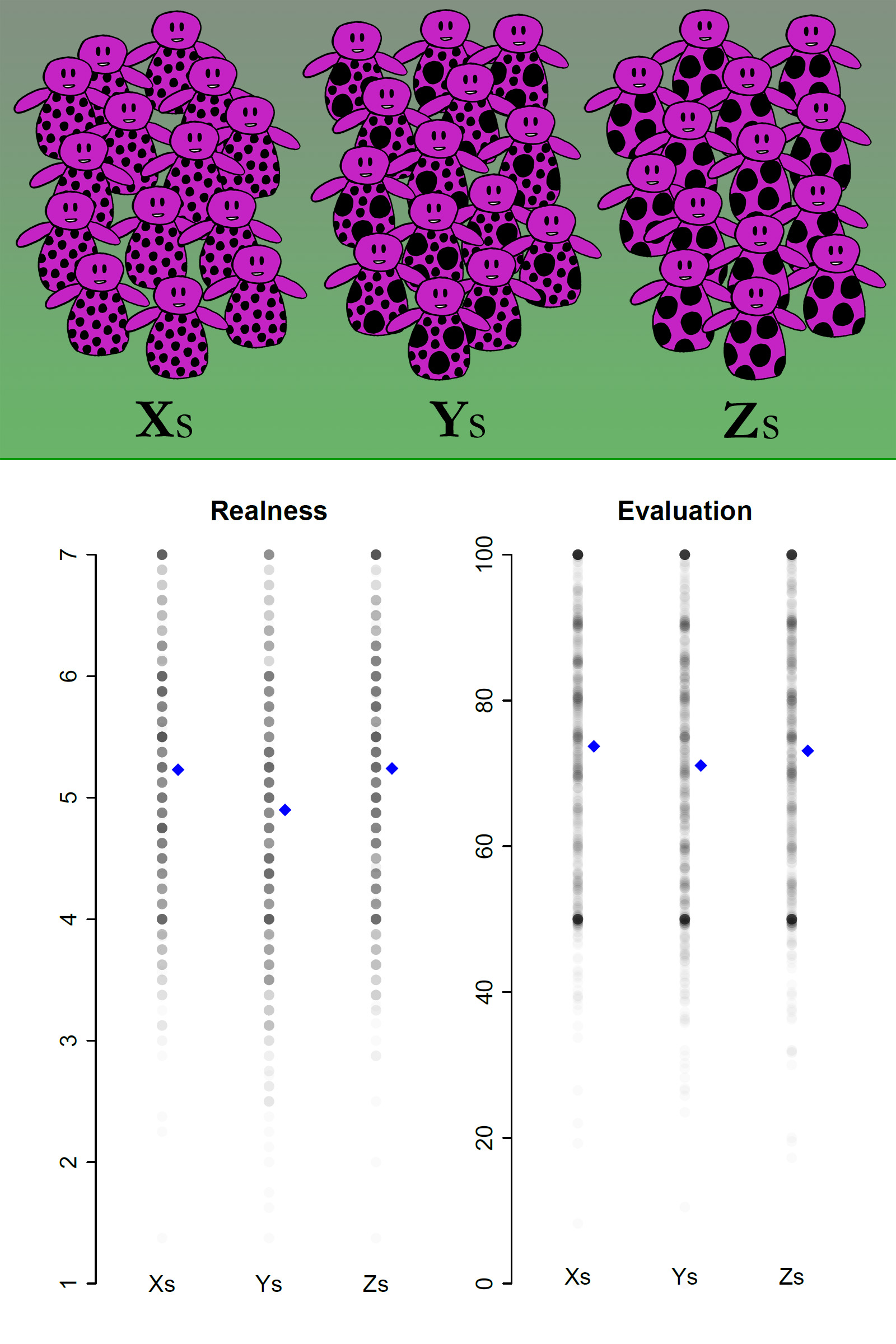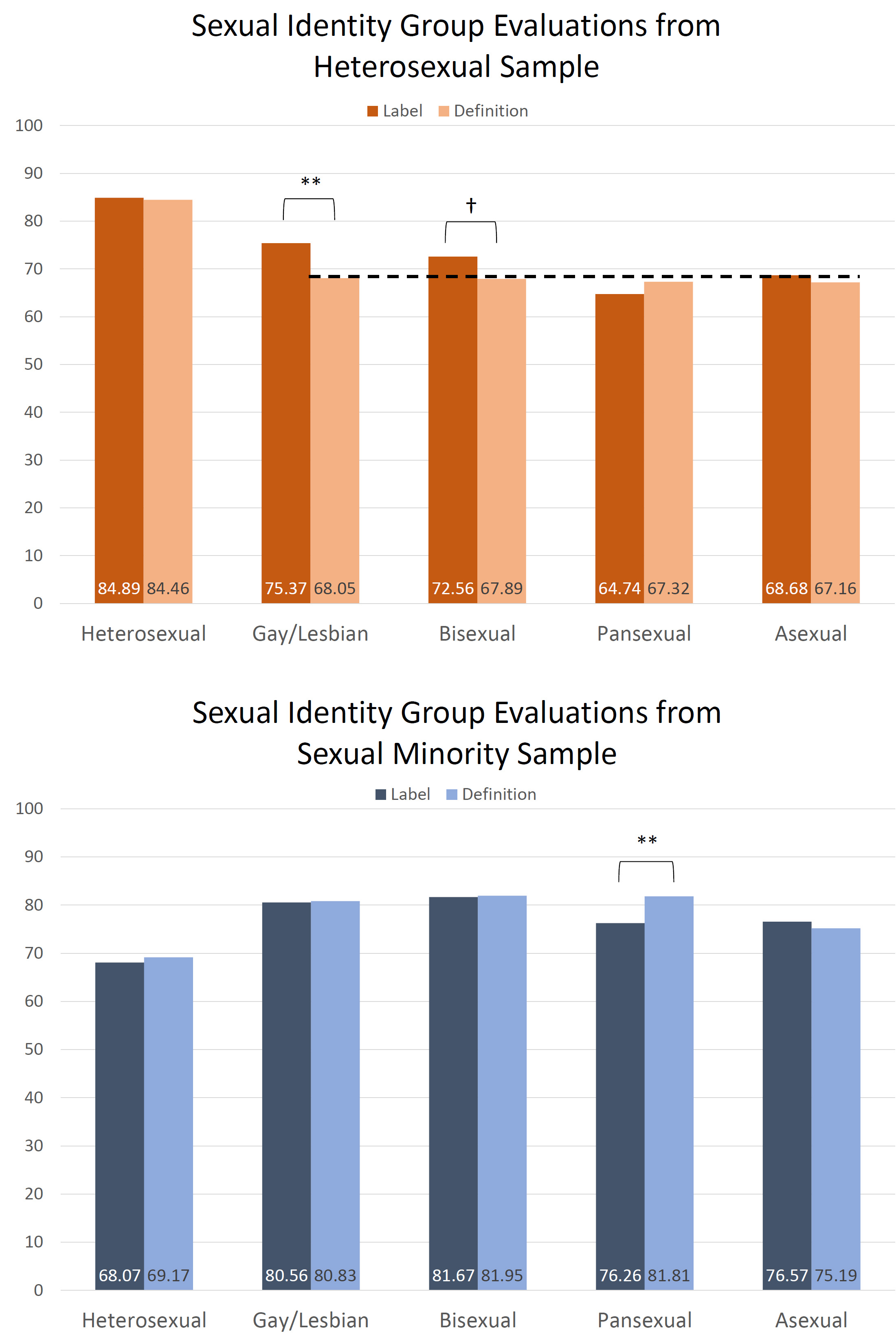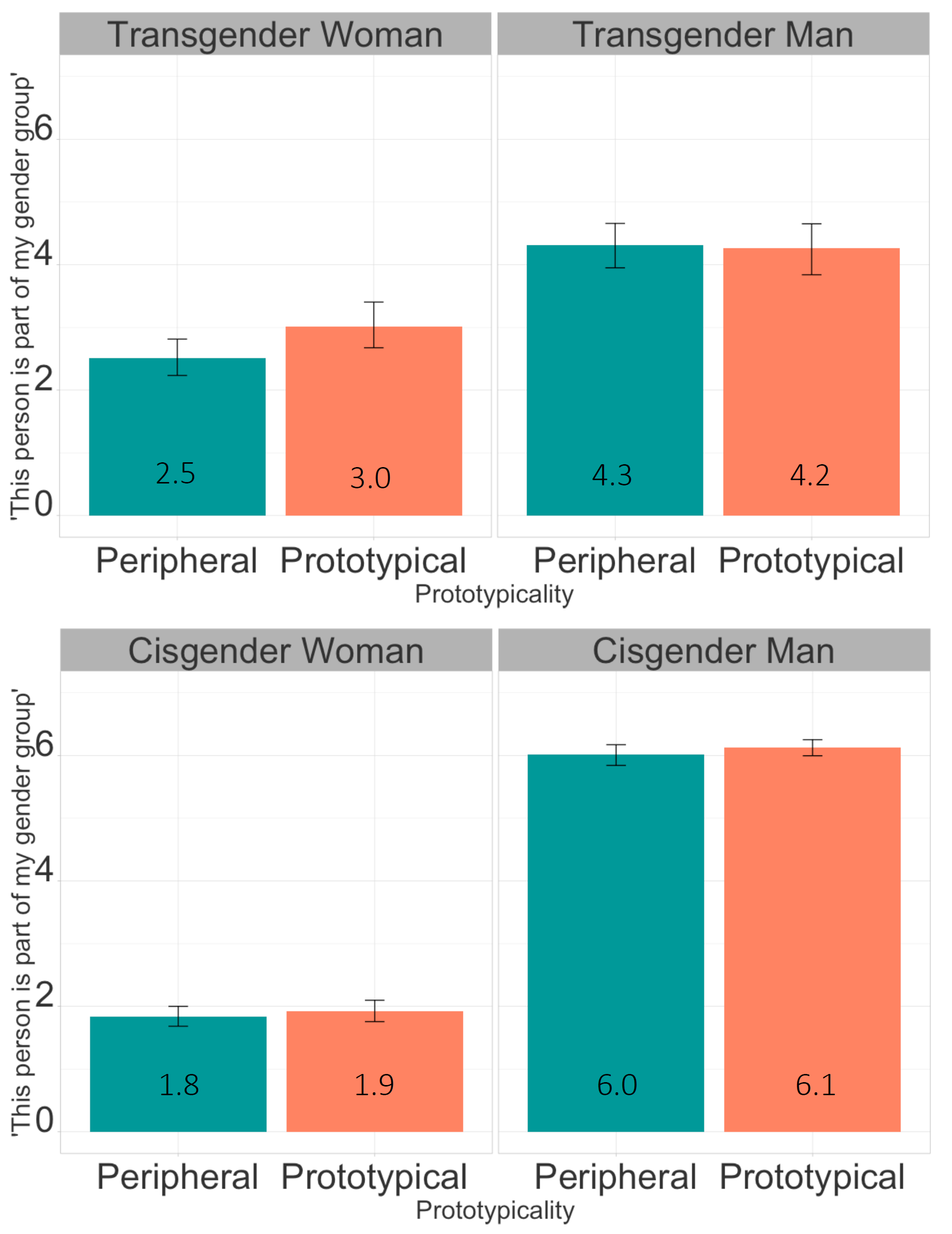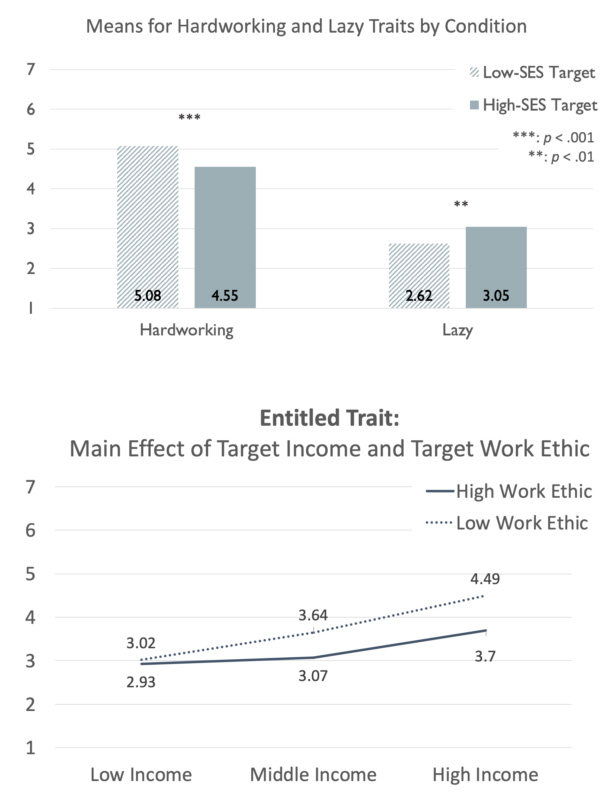This page presents brief examples of interesting results from some of our recent and ongoing research projects.
Hypothetical Intermediate Social Groups

Across five studies involving groups of creatures in a hypothetical society, participants spontaneously imagined the “intermediate” group (pictured as “Ys”) as being less of a “real” group and less positively evaluated. (In the graphs, darker shading conveys more overlapping observations, the total sample size for each rating is 848, means are represented with blue diamonds, and the confidence intervals are too narrow to be visible.)
Labeling Versus Descriptions of Sexual Orientation Groups

In research led by Mackenzie McDonald, we manipulated whether sexual orientation groups were referred to using common identity labels (e.g., “gay”) or definitions (descriptions of their patterns of attraction). Heterosexual participants responded more favorably to gay and lesbian people when they were referred to as “gay” or “lesbian” (label condition) as opposed to being described in terms of their “attraction to the same gender” (definition condition). A combined sample of sexual minority participants did not show the same pattern, but did express relatively unfavorable evaluations of pansexual people referred to as “pansexual.” (We suspect that these results may have to do with self-presentational concerns and/or familiarity with the terms.)
Prototypicality Threat and Men’s Categorization of Transgender People

In research led by Alexandria Jaurique, we manipulated whether heterosexual cisgender men were told they had performed in a manner similar to other men (prototypical of their gender ingroup) or similar to women (peripheral) on an unrelated task before they reported whether people depicted in several Facebook profiles were members of their gender group. On average, participants described cisgender men as “men” to a greater extent than transgender men, and cisgender women as “women” to a greater extent than transgender women. Additionally, though, feeling peripheral caused men to reduce the extent to which they described transgender women as “part of my gender group,” raising the possibility of tension between controlling the boundaries of the group and misgendering trans women.
Race and Gender of Targets of Discrimination
In research led by Minnie McMillian, we investigate the assumptions that people make about typical targets of discrimination, depending on what kind of discrimination they have in mind. For example, when people envision an instance of police violence, they tend to imagine it happening to a Black man, rather than a Black woman or a member of another racial group.
Predictors of Prejudice Against Nonbinary People
In research led by Ben Valen, we investigate patterns of prejudice against people with nonbinary (not exclusively male or female) gender identities. Some key predictors include conservative political orientation, social dominance orientation, and need for closure. It does not seem to make much difference whether the term “nonbinary” is used or a more detailed description is given in its place.
Investigating Class Attitudes: Derogation of the Lazy Rich and Praise for the Hardworking Poor

This research, led by Mackenzie McDonald, aims to broaden current understandings of factors that influence class prejudice. In an initial study, and contradicting prior research, we found that participants had significantly more positive attitudes toward a low-socioeconomic status (SES) candidate than a high-SES candidate.
We later manipulated SES and perceptions of work ethic to investigate the role that endorsement of the Protestant work ethic (PWE) plays in shaping class attitudes. Overall, this research suggests that perceptions of work ethic and class status may operate together in determining attitudes. Specifically, when low-SES targets are evaluated as high in work ethic, this may trigger a specific sub-type of the “hard-working poor” that overrides negative stereotypes of low-SES targets as lazy or less competent.
Class Attitudes & Attributions
In research led by Mackenzie McDonald, we investigate ways in which class attitudes may be influenced by attributions people make about a target’s socioeconomic status (SES) group. In a current study, participants read a short vignette about a low-SES target who is either lazy (a dispositional attribution for SES) or unlucky (a situational attribution for SES). We are interested in how people may evaluate low-SES targets differently depending on this attribution. Specifically, we are predicting that participants will evaluate unlucky (versus lazy) targets more positively with respect to trait evaluations and that this will also be reflected in their endorsement of classist stereotypes.
